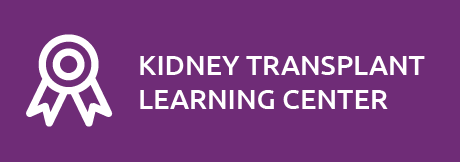First Steps
If you are considering being a living organ donor, it’s important to educate yourself about the donation process, required testing, financial considerations, risks and recovery.
Request more information
If you decide to pursue non-directed donation, you will need to contact transplant centers in your area to learn more about the types of living donor transplants they perform and how to proceed. If you are thinking about being a living donor for someone you know, you should contact their transplant center for more information.
Reference and Publication Information
United Network for Organ Sharing (UNOS) is committed to providing accurate and reliable information for transplant patients. The content on this page was originally created on February 22, 2007 by UNOS and last modified on July 21, 2009. The following sources were used as references: United Network for Organ Sharing. (2011). What Every Patient Needs to Know [Booklet]. Richmond, VA: United Network for Organ Sharing.
This Web site is intended solely for the purpose of electronically providing the public with general health-related information and convenient access to the data resources. UNOS is not affiliated with any one product nor does UNOS assume responsibility for any error, omissions or other discrepancies.

